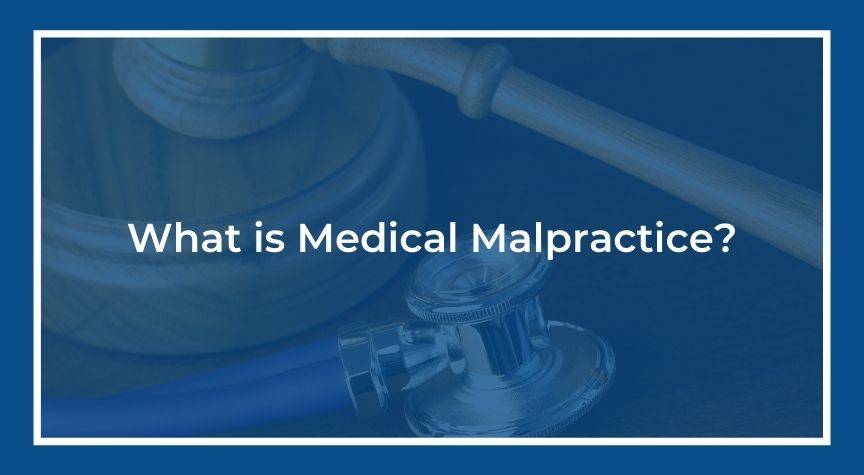Medical malpractice occurs when a health care professional, such as a nurse or doctor, fails to provide a certain standard of care to a patient, resulting in harm, injury, or death. You must meet a few criteria to build a successful medical malpractice case, including:
- Failure to provide a certain standard of care
- Harm or injury resulting from negligence
- The injury does considerable damage (this could be constant pain, a substantial loss of income, suffering, or enduring hardship)
Types of Medical Malpractice
“Medical malpractice” is a general term that refers to one of many specific types. From surgical errors to misdiagnoses, let’s look at different forms medical malpractice can take.
Medical and Hospital Negligence
Medical (and hospital) negligence refers to a situation where a healthcare professional believes that they act in their patient’s best interest but provide care that results in harm or injury.
If a different “reasonably prudent” doctor would have done things differently, the healthcare professional in question may be guilty of medical negligence.
Surgical Errors
While all surgeries entail some level of risk, a surgeon is guilty of medical malpractice if they make an error that could have been prevented if they had followed the standard of care. For example, if a surgeon operates on the wrong body part, leaves a sponge inside the body, or cuts in the wrong location, they have not provided a proper standard of care.
Birth Injuries
This can refer to injuries sustained by a mother, a child, or both during the delivery. Acts of negligence may result in an injury to a mother or a child during this process, but wrongful birth is another factor to consider. Wrongful birth occurs when a doctor fails to inform parents of imminent or possible physical or mental congenital disabilities that would have made the parents avoid or end the pregnancy.
Medication Errors
Some medications come with side effects, but a doctor can also make serious medication errors that result in a malpractice lawsuit. If a doctor prescribes the wrong dosage or medication or fails to check a patient’s drug allergies or conflicting medications, they may be guilty of malpractice.
Misdiagnosis of a Heart Attack
If a doctor misdiagnoses your heart attack as acid reflux or heartburn, you should speak to a lawyer. Heart attacks are commonly overlooked or misdiagnosed as other minor worries, resulting in serious injury or death.
Delayed Diagnosis/Misdiagnosis of Cancer
Delayed diagnosis refers to a situation where a doctor does not diagnose a patient within a reasonable amount of time. This can lead to weeks, months, or even years passing without obtaining the proper treatment, which can cause untold harm and suffering.
Plastic Surgery Malpractice
As plastic surgery is a choice, you may think that a surgeon cannot be held accountable for mistakes they make. Thankfully, this is not true. If a surgeon does not maintain a proper standard of care and a patient experiences scarring, nerve injuries, or infection, the surgeon may be guilty of malpractice.
Wrongful Death
Several of the examples above could lead to wrongful death, including misdiagnosis of a heart attack and delayed diagnosis of cancer. In the simplest terms, if a doctor fails to diagnose a patient or does not provide a proper standard of care and the patient dies, there may be a case for wrongful death.
Talk with an Experienced Medical Malpractice Attorney
Ted Babbitt, Florida personal injury lawyer, has been handling medical malpractice cases for over 50 years. He was in fact the first medical malpractice lawyer to take on a medical malpractice case in Palm Beach County in 1968. The brain injury case resulted in the largest verdict at that time of $120,000 – Ellington vs. Good Samaritan Hospital. In 1974, Ted took the case of Tally vs. Schwab, which resulted in a $1.68 million verdict and got him invited, as the youngest member at 33 years old, into the Inner Circle of Advocates – today he is the longest-serving member.
If you believe you have been injured as a result of a medical professional’s carelessness or negligence, you have the right to pursue a case, preferably with the help of an experienced attorney who can protect your interests. Don’t hesitate to fill out this online form or call Ted at (561) 375-2841 for a free consultation where you can speak with a member of his team and get your questions answered.
